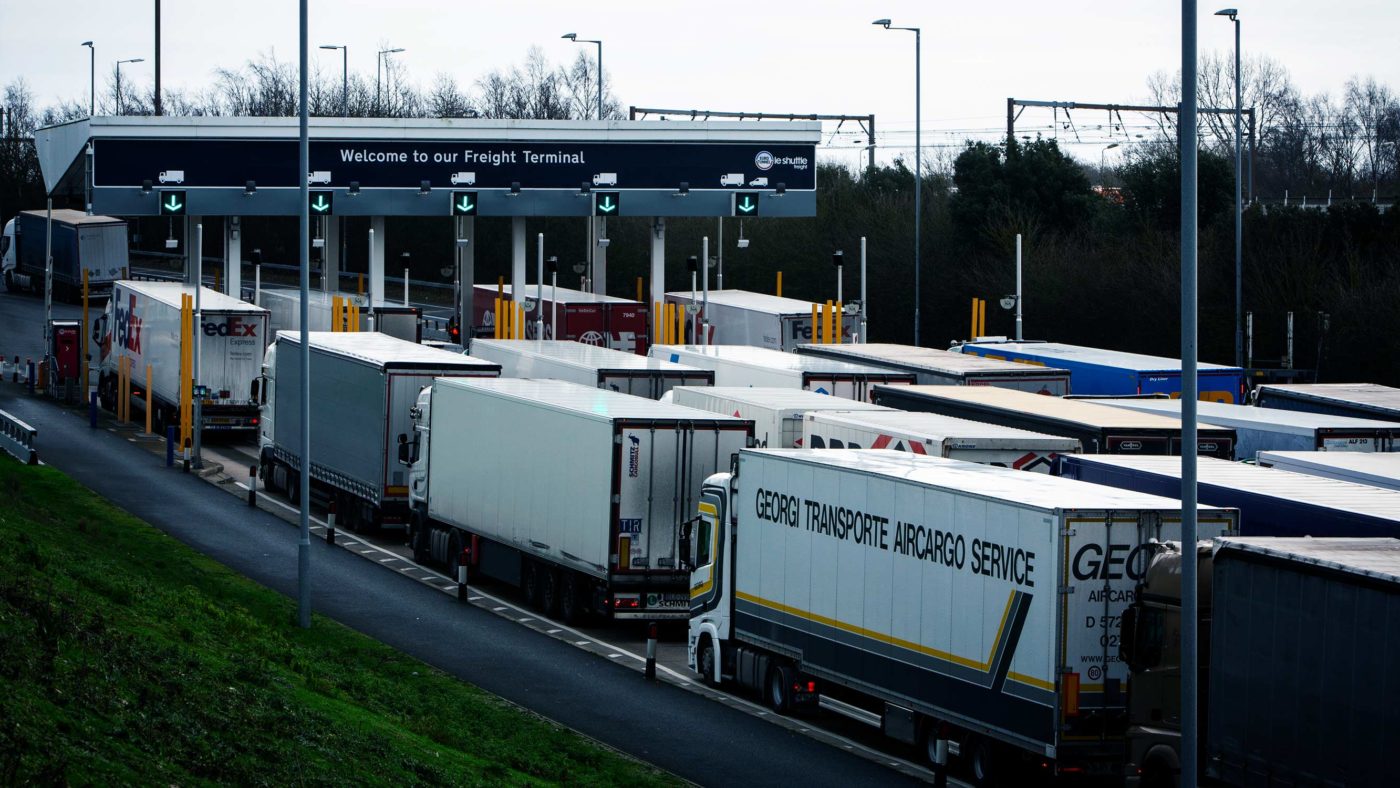Brexit is about far more than just trade between the UK and EU, but one of the most visible impacts so far has been the disruption to goods imports and especially exports at the end of the transition period. The latest data on international trade, published this morning by the ONS, are therefore reassuring.
The good news is that there was a decent rebound in the value of UK goods exported to the EU (up 47%) between January and February, after a rocky start. Exports (both to the EU and the rest of the world) were still lower than pre-Covid levels a year earlier, but this measure should soon turn positive as well.Preliminary estimates from French customs are already signalling a further improvement in March. According to the French (who you wouldn’t necessarily expect to have a good word to say):
‘Trade in goods between France and the UK, both exports and imports, has been rising steadily since January and by March was close to normal, allowing for the persistence of the economic consequences of the pandemic’.
High-frequency indicators such as shipping visits and UK-EU freight volumes have also continued to recover.
UK exports to the EU are still likely to underperform those to the rest of the world, but not just due to Brexit. It is important not to forget that the EU economies themselves are struggling, with some heading back into lockdown.
Consistent with this, both the OECD and IMF have recently revised up their forecasts for both global and UK growth, while barely changing their numbers for the rest of Europe. Euro area GDP is only expected to grow by around 4% this year, compared to 6.5% in the US and 8% or more in China.
Obviously, it is not all bright sunlit uplands. Many UK companies – especially smaller enterprises and individuals – are still struggling with the increases in barriers to trade between the UK and the EU. The additional checks between Northern Ireland and mainland Britain are clearly one of several factors behind the renewed unrest in Belfast.
But recent surveys offer some further reassurance about the impact on the UK economy here too. In particular, the latest Deloitte poll of CFOs shows that concerns about Brexit have dropped sharply down the risk list, having been top for long periods since 2016. Indeed, ‘deflation and economic weakness in the euro area and the possibility of a renewed euro crisis’ is now seen as bigger risk.
The Deloitte survey also suggested that most (albeit mainly larger) businesses have faced only mild or no Brexit disruption. Just under 10% of CFOs have experienced ‘significant’ or ‘severe’ problems, but this proportion is expected to drop to 3% in a year’s time.
Some other surveys are more pessimistic. One by EY and London First found that three-quarters of respondents faced some degree of disruption following the end of the transition period, and half of those expect it to continue over the long term.
This may be more representative of the experiences of smaller companies. However, the EY/London First polling was conducted earlier (16-22 February, compared to 17-29 March for the Deloitte survey), and so may not be as up to date.
There are other problems with surveys too. Those run by trade bodies are often self-selecting, with companies facing disruption more likely to reply than those that are not. The responses also often tell us little about the magnitude of any disruption (just that there has been some), or its duration.
Finally, it is not always easy to disentangle Brexit-related factors from broader trends. In particular, one of the most common problems cited by UK importers and exporters is a jump in transport costs. But this is mainly a global phenomenon, driven by limited shipping capacity and the rebound in oil prices.
It therefore makes sense to put most weight on the hard data, rather than rely on business surveys or anecdotal evidence. These data are now telling a more positive story about UK-EU trade – despite Brexit.
Click here to subscribe to our daily briefing – the best pieces from CapX and across the web.
CapX depends on the generosity of its readers. If you value what we do, please consider making a donation.


